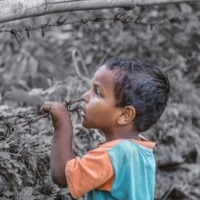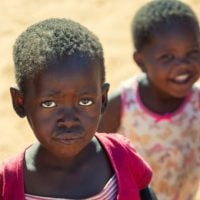Deadline: 19 February 2019
The United States Department of State Bureau of Population, Refugees and Migration (PRM) is seeking concept notes for a program entitled “2019 Humanitarian Research” to strengthen evidence-based humanitarian decision making by PRM and its partners worldwide.
Concept notes must respond to one of the following research questions:
- Humanitarian Financing: Researchers will conduct an analysis of humanitarian financing that would improve availability and inform analysis of donor-specific funding to global and country-specific humanitarian need, provide recommendations to improve existing publicly available data sets on humanitarian assistance, and assist U.S. government efforts to improve humanitarian burden sharing. What are the comparative strengths and weaknesses of existing publicly available data sets on humanitarian funding, and how can they be improved to provide an accurate, complete, and timely set of data? What are the appropriate measures to consider in assessing overall humanitarian giving, e.g., how can non-financial contributions by host countries be accurately reflected? What indicators can donors use to track incremental (i.e., quarterly) global humanitarian funding and U.S. proportion thereof?
- Relief and Development Coherence: Building off of the existing OECD/DAC paper on Strengthening Humanitarian-Development Coherence, what are best practices for collaboration between humanitarian and development actors in forced displacement situations? How can existing data on displacement situations be used to inform effective humanitarian/development collaboration? What indicators can be generated from this data to monitor progress toward sustainability or graduating humanitarian assistance beneficiaries to development funding? What other tools can be used to develop a joint development/ humanitarian approach to displacement that promotes sustainability, program efficiency and effectiveness, and dignity for displaced individuals and host communities? Priority will be given to proposals that, through country-level case studies, can identify attributes of successful relief and development coherence programs in both new and protracted crises.
- Civilian-Military Interaction in Conflicts: This research will seek to address the following questions: What are the most significant gaps in communication, interaction, and/or coordination between humanitarian and armed actors during armed conflict and in partnered operations? What practices have been especially effective in bridging gaps between humanitarian and armed actors while adhering to humanitarian principles? What factors impact the types of civil-military interaction and/or coordination that occur in armed conflicts? What can belearned from experiences and practices from recent conflicts – including in the planning, response, and transition phases? What are the international and country-specific guidelines, policies, and doctrines addressing civil-military interaction or coordination in armed conflicts? To what extent have humanitarians and armed actors adhered to these guidelines, policies, and doctrines and what has been the impact of adherence or non-adherence?
- Post-Conflict Refugee Returns: This research will explore what factors contribute to safe, voluntary, and sustained returns following forced displacement due to conflict. What is the interplay between international organizations, outside actors, and host governments in facilitating returns? How do perceptions of safety by refugees contribute to the likelihood of returns? What does an end state look like?What factors are required for sustainable returns/successful reintegration? What is the interplay between humanitarian funding, development programs, and the rate and sustainability of returns? The research should examine types of legislation and reconciliation process mechanisms that support environments favorable for and incentivize and sustain post-conflict refugee returns. Proposals must include the Western Balkans as one case study example and take into account work done on this topic within the context of the Sarajevo Process and the accompanying Regional Housing Program.
Funding Information
- Award Ceiling: $300,000
- Award Floor: $200,000
Population and Area-specific Provisions
- Concept notes must propose research relevant to specific PRM populations of concern. For the purposes of this call for concept notes, this includes refugees, internally displaced persons, stateless persons, and vulnerable migrants.
- PRM will not review proposals for domestic research on U.S.-based assistance activities. Concept notes should propose humanitarian research to be conducted overseas.
Eligibility Criteria
- Nonprofits having a 501(c)(3) status with IRS, other than institutions of higher education;
- Nonprofits that do not have a 501(c)(3) status with IRS, other than institutions of higher education;
- Private institutions of higher education;
- Public and State controlled institutions of higher education.
How to Apply
Interested applicants can access the application package via given website.
For more information, please visit https://www.grants.gov/web/grants/view-opportunity.html?oppId=311395









































